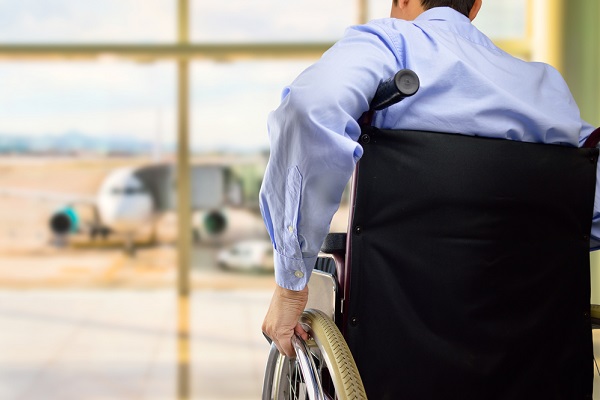In a landmark move, the UK government has launched a dedicated taskforce to enhance aviation accessibility for disabled travellers. The Aviation Accessibility Task and Finish Group will work diligently to address persistent challenges that hinder a seamless travel experience. By collaborating with industry experts, this initiative strives to promote dignity and equality in air travel.
This proactive step underscores the government’s commitment to reforming the aviation sector to better serve disabled passengers. The taskforce aims to ensure comprehensive improvements in service standards, focusing on issues that have long been neglected. With the support of various stakeholders, the initiative seeks to create a more inclusive air travel environment.
Introduction of the Taskforce
The UK government’s decision to establish an expert group focused on improving aviation accessibility is a significant development. This taskforce, known as the Aviation Accessibility Task and Finish Group, aims to remove barriers for disabled passengers. Chaired by Paralympian Baroness Tanni Grey-Thompson, the group includes representatives from various sectors, including disability groups, airlines, and airports. By involving these diverse voices, the initiative seeks comprehensive solutions to long-standing accessibility challenges.
Core Objectives and Initiatives
Central to the taskforce’s mission is ensuring dignity and equality in air travel for disabled passengers. Transport Secretary Louise Haigh emphasised the importance of accessible, safe, and enjoyable flying experiences for all. With this initiative, the government demonstrates its commitment to driving industry reform. The taskforce plans to address pressing issues such as mishandling of wheelchairs, inadequate toilet facilities, and poor service standards. These challenges have long affected the travel experience of disabled passengers.
First Steps and Upcoming Meetings
Recommendations will cover a wide range of accessibility issues, aiming to improve the treatment of passengers with disabilities. The group’s work is critical in forming a cohesive strategy that not only addresses immediate concerns but also ensures long-lasting solutions.
Support from Industry Leaders
By working closely with the taskforce, airlines and airports can help address issues such as damaged wheelchairs and the lack of assistance. The aim is to foster an environment where disabled passengers receive fair and dignified treatment throughout their journey.
Feedback from Disability Advocates
The taskforce’s expected outcomes are eagerly awaited by disability groups, who hope for substantial improvements. The collaborative nature of the team, bringing together experts from different fields, is expected to result in actionable solutions that make air travel fairer and more inclusive.
Long-term Vision and Strategy
Through sustained efforts, the taskforce intends to maintain focus on the accessibility agenda. The commitment to regular updates and open dialogue with stakeholders aims to address emerging challenges and incorporate innovative solutions for accessible air travel.
Implementing Accessible Solutions
The taskforce’s efforts are aligned with industry goals to enhance customer satisfaction and service standards. Ensuring that these solutions are adopted and monitored effectively will be crucial in achieving the desired outcomes.
Challenges and Resolutions
With determined leadership, the taskforce seeks to foster an industry-wide culture of accessibility. The efforts to engage all parties involved, from airlines to airport authorities, are expected to drive meaningful resolutions.
Commitment to Passenger Rights
The goal is to institutionalise accessibility as a standard practice, not a special requirement. By embedding these principles into everyday operations, the taskforce aims to ensure equality in air travel.
The taskforce represents a crucial step towards a more accessible future for air travel, with ambitious plans and industry support promising positive change.
Through collaboration and strategic implementation, it aims to secure meaningful improvements that uphold the rights and dignity of disabled passengers. The focus remains steadfast on fostering an inclusive travel landscape.

